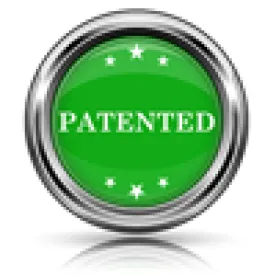Takeaway: A petition must include a sufficient showing that a cited reference was publicly accessible as of its alleged date of publication—including by pointing out the significance of relevant evidence in the record, and a failure to make such a showing cannot be remedied through discovery.
In its Decision, the Board denied Petitioner’s request for rehearing of the Board’s Decision denying institution of a covered business method patent review of claims 1-4 of the ’100 patent under 35 U.S.C. §§ 102 and 103 because it was not persuaded that Petitioner made a sufficient showing that a cited reference was publicly accessible.
In the Request for Rehearing, Petitioner argued that the Board “misunderstood or overlooked governing law, as well as evidence from the reference itself showing that [it] is a printed publication….” In particular, it argued that the Board “misapprehended or overlooked the publication date and the copyright notice on the face of the [ ] reference” as well as the “library markings that appear on the [ ] reference.” Petitioner further argued that Patent Owner’s questions concerning the public availability of the cited reference should have been addressed through routine discovery, not by denying institution.
The Board first addressed Petitioner’s arguments concerning the publication date and copyright notice. The Board noted that, in the request for rehearing, Petitioner did not cite to, and the Board was unable to find, where this argument was addressed in the Petition. The Board also noted that the Petition does not mention or present argument concerning the copyright date “or that a copyright notice date is prima facie evidence of publication.” The Board stated that it “could not have misapprehended or overlooked an argument that was not previously raised, and the Corrected Request for Rehearing is not the place for Petitioner to raise new arguments.”
The Board then rejected Petitioner’s argument that a copyright notice is prima facieevidence of a publication date. Specifically, the Board stated that it would “not assume facts that Petitioner must prove in its Petition” — i.e., “that the September 30, 1996 ISBN date that appears on the face of [the cited reference] is its publication date and that, as of that date, [the reference] was publicly accessible.” The Board further stated that “it is not the Board’s task to prove that the date on the face of [the cited reference] is not the publication date. . . .” The Board then rejected Petitioner’s arguments concerning the ISBN date and copyright notice on the grounds that they were not previously presented. It similarly rejected arguments concerning a library stamp on a page of the reference. Though the Board stated that it was not convinced the library stamp showed public accessibility at the time of the purported publication, it concluded that the argument had not been previously presented and explained that “it is not sufficient if evidence may be available in the record, if Petitioner does not argue its significance.”
The Board then considered Petitioner’s argument that “the copyright notice and the library seal are sufficient to meet the ‘reasonable likelihood’ standard applied by the Board in determining whether to institute review” and that “additional facts establishing the public availability of the [ ] reference are properly the subject of routine discovery in these proceedings.” The Board first noted that Petitioner misstated the standard for institution of a CBM (which actually is whether “it is more likely than not” that one of the claims is unpatentable) and stated that “[r]outine discovery is not a vehicle for repairing deficiencies in the Petition.”
Square, Inc. v. Unwired Planet, LLC, CBM2014-00156
Paper 22: Decision Denying Request for Rehearing
Dated: February 26, 2015
Patent: 7,711,100 B2
Before: James B. Arpin, Zhenyu Yang, Kevin W. Cherry
Written by: Arpin



 />i
/>i
